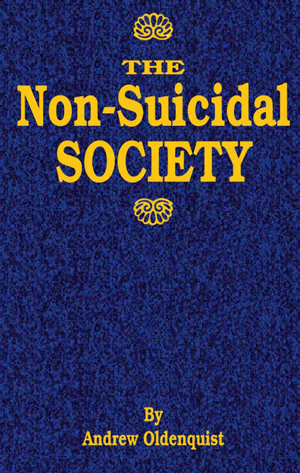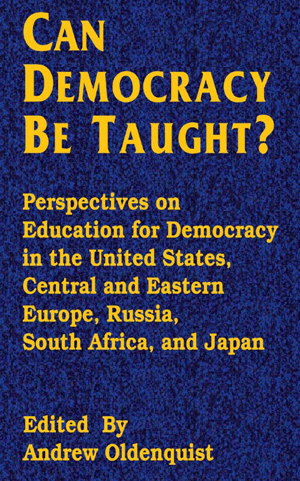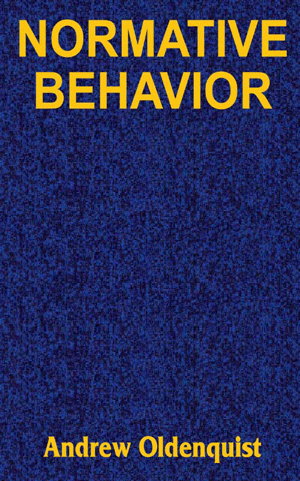Subtotal: 0.0
It is a perilous business writing about the history of ideas just a decade or two old. But American society went through a great trauma between the sixties and the early eighties. If there is reason to think ideas from those times prompted policies that contributed to the present state of education, crime, and urban life, there is no choice but to plunge in. For two decades schooling has been seen as failing in various ways, the quality of urban life is generally considered to have declined, and the elderly and the vulnerable have lived in heightened fear of violence and incivility.
The mid-`70S to the early `80S were the worst period. The headiness of the `60S was gone and the loss of respect for and involvement in social institutions, spawned by the war, the riots, Watergate, and the civil rights revolution had had time to incubate: There was no excitement anymore, just a gathering awareness of intolerable crime, failing schools, and blue collar blues. People turned inward and each person and each apartment became a fortress. The regard citizens had for the common good-including our schools, ceremonies, rituals, as well as patriotism, mutual civility, and mutual assistance-fell out of fashion. The ideas of the `60S gave us the practices of the `70s-the guilt-exorcism of the psychotherapists, the self-esteem fetishism and flight from standards of educators, the selling of selfishness by pop psychologists, and the criminologists` bland relabeling of crime and delinquency as ``deviance.`` The practices of the `70S left us with problems for the `80S and `90S.
There is now a national will to put an end to this. But the will requires a way and it is my hope to make some small contribution to the fashioning of it-to the articulation of a rational, self-respecting, policy-oriented social philosophy as America finishes the twentieth and prepares for the twenty-first century. The basis of our problems, I shall try to show, was a temporary breakdown of Americans` conception of themselves as social creatures; it was a transitory narcosis of the multitude of filaments that link individual persons to their societies.
I wish to express my gratitude to the Department of Philosophy and College of Humanities at The Ohio State University for a sabbaticalleave during which the final draft of this book was written. The department also was generous in providing me with research assistants. I am also indebted to Ohio State`s Mershon Center, and to its director Charles Hermann, for a National Security Award in the summer of 1980 to write on loyalties. From that essay, which began as a modest defense of a communalistic conception of society and citizenship, the outline of a book quickly took form. I was greatly assisted, during the four years of writing the book, by the congeniality, intellectual stimulation, and generous support of the Mershon Center. The Ethics Resource Center in Washington, D.C., and its director, Gary Edwards, have been a source of encouragement, useful discussion, and funding for research on the phenomena of alienation.
I am grateful to the editors of the following magazines for permission to use material from articles I published: The Public Interest, for II `Indoctrination` and Societal Suicide,`` and ``The Case for Revenge``; The Harvard Educational Review, for ``Review Essay: Moral Education Without Moral Education``; Character, for ``Tribal Morality`` (co-authored with Michael Lynn); The Journal of Philosophy, for ``Loyalties``; American Education, for ``The Decline of American Education in the `60S and `70S.``
A number of individuals have given generously of their time to comment on drafts of chapters. I am particularly grateful to Norman Care at Oberlin College for extensive, provocative, and helpful comments on a long early draft. Davydd J. Greenwood at Cornell University, William Lycan at the University of North Carolina at Chapel Hill, and Edward Wynne at the University of Illinois at Chicago also provided very helpful critical comments on early drafts.
My colleague Richard Garner has discussed with me at length a number of more recent draft chapters. Helpful comments have been made by other philosophical colleagues including Wallace Anderson, Daniel Farrell, Donald Hubin, Joel Kupperman, Bernard Rosen, Robert Turnbull, and by anthropologist Daniel Hughes, zoologists Paul Colinvaux and Edward O. Wilson, and political scientists Lawrence Herson, Charles Hermann, and James Q. Wilson. I owe a special debt of gratitude to Michael Lynn, who, while a psychology graduate student, was a tireless research assistant, remaining available even when I was out of funding; he has been a critic and supplier of good ideas, and a source of moral support. Other students, especially Douglas Chismar, Erdinc Sayan, Barbara Scholz, and Lidia Moreno helped with ideas and sheer labor. I must, finally, mention the indispensable support and patience of my wife and children, without which the will would have failed.
PREFACE
PART I : LEARNING FROM THE `60s and `70s
ONE Introduction
TWO The Price of Perfect Individualism
T H R E E The Trashing of American Education
F 0 U R Moral Education without Moral Education
F I V E The Ethically Neutered Society
S I X Laconic Violence
S EVE N The Selling of Selfishness
PART II : WHAT IT MEANS
TO BE A SOCIAL ANIMAL
E I G H T The Failure of Selfishness
N I N E The Metaphysics of Self and Society
TEN The Ethics of Parts and Wholes
E LEV E N The Ethics of Evolution and the Evolution of Ethics
T W E L V E Human Nature and the Social Contract
T H I R TEE N Our Secret Pleistocene Inheritance
F 0 U R TEE N Human Nature and Society
F IFT E E N Race
S I X TEE N Sanitized Revenge
S EVE N TEE N Why There Is an Ethics of Work
E I G H TEE N Alienation and De-Alienation
NOTES
INDEX




Please Login To Write A Review
Login